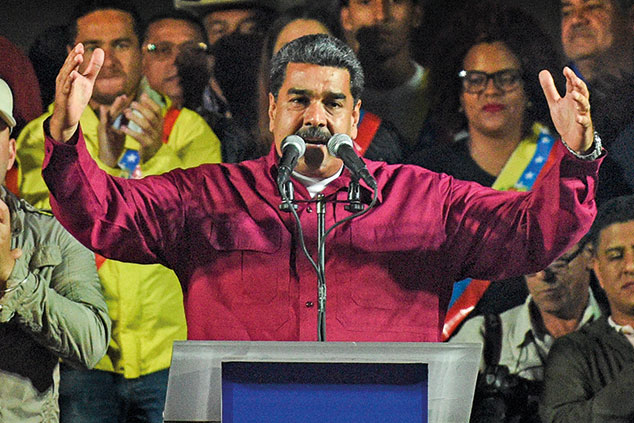
The result of Sunday’s presidential election in Venezuela was “never in doubt”, says Gideon Long in the Financial Times. Nicolas Maduro won “by a mile”, thanks to a mixture of coercion – including, allegedly, food for votes – propaganda and “possibly outright fraud”. What is less predictable, is what happens between now and 2025, when his term expires.
The US has already announced a ban on US purchases of debts owed to the socialist government and state-owned oil company PDVSA. The Lima Group of 14 countries, including Brazil and Mexico, refused to recognise the election result and said they would increase scrutiny of sanctioned members of the Venezuelan government. However, analysts think Washington is unlikely to impose a full embargo on Venezuelan oil, not least because its output is “falling so quickly” it is losing relevance.
Since Maduro took over from his mentor Hugo Chávez, who died in 2013, Venezuela’s crisis has “intensified” due to lower oil prices, “corruption and a socialist system plagued with mismanagement”, say Anthony Faiola and Rachelle Krygier in The Washington Post. Oil production is collapsing. Last year, 25,000 workers at PDVSA – 25% of the workforce – quit in a mass exodus.
The economy is in freefall, along with public services. Diseases such as diphtheria are “not only resurfacing but surging”. Citizens cannot afford to eat. The minimum wage has dropped by 95% in real terms since 2013, inflation is running at 13,000%, and at least one million have emigrated in the past four years, adds Stephen Gibbs in The Times.
“Little is left of the hope and fury that animated protests against the regime last year,” says The Economist. But Maduro cannot defy for ever the laws of economics or the international coalition ranged against him. His victory “may be not only fake, but fleeting”.